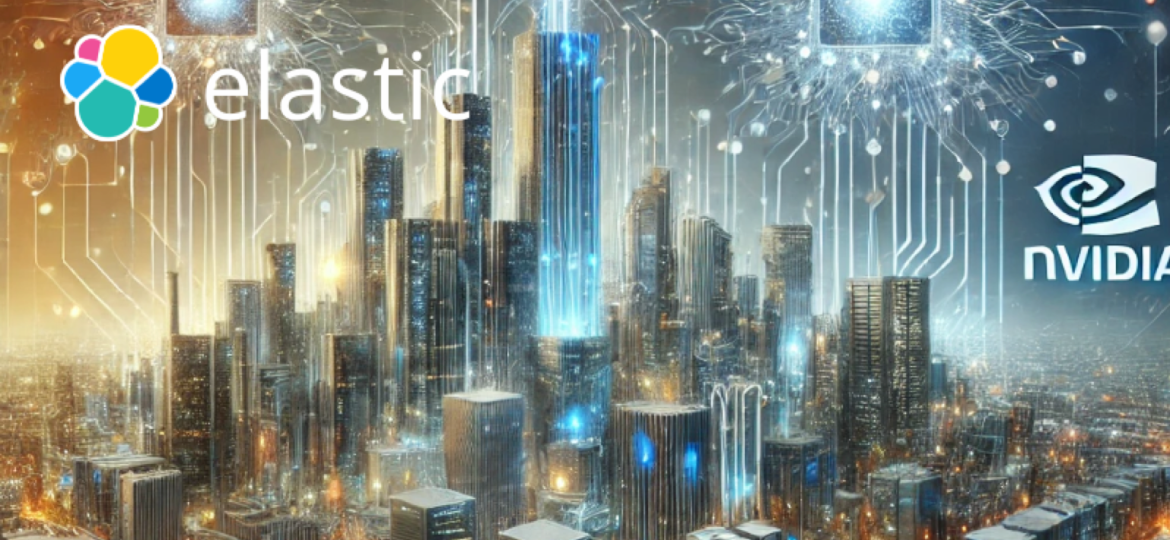
Elastic (ELK) Stack – AI – NVIDIA chips
introduction
AI use cases that deliver the most business value typically focus on improving efficiency, reducing costs, increasing revenue, and enhancing customer experience. Here are some of the top AI use cases that deliver significant business value across industries and that can be implemented with the Elastic (ELK) stack.
Customer Service Automation (Chatbots & Virtual Assistants)
- Use Case: AI-powered chatbots and virtual assistants handle customer queries, provide personalized recommendations, and resolve issues.
- Business Value: Reduces the cost of customer support, increases customer satisfaction, and provides 24/7 availability.
Fraud Detection and Prevention
- Use Case: AI models detect suspicious patterns and anomalies in transactions or behaviors to identify and prevent fraud.
- Business Value: Reduces financial losses due to fraud and improves security.
Natural Language Processing (NLP) for Text and Document Processing
- Use Case: AI reads, understands, and extracts insights from large volumes of text (e.g., contracts, emails, reports).
- Business Value: Speeds up legal review, compliance checks, and customer feedback analysis, improving decision-making and efficiency.
Personalized Marketing and Recommendations
- Use Case: AI analyzes customer data to deliver personalized marketing messages, product recommendations, and content.
- Business Value: Increases customer engagement, improves conversion rates, and drives higher sales.
Predictive Analytics
- Use Case: AI-driven predictive models analyze historical data to forecast future trends, demand, inventory, energy consumption or behavior.
- Business Value: Helps businesses make informed decisions on inventory, pricing, marketing campaigns, and resource allocation.
Predictive Maintenance
- Use Case: AI predicts when machinery or equipment will fail and schedules maintenance proactively to prevent downtime.
- Business Value: Minimizes costly breakdowns, reduces repair costs, and extends asset lifespan.
What do you need to enjoy the benefits of ai?
To implement AI use cases you need (at least) qualitative data, a data management platform and AI or ML models.
The Elastic (ELK) stack is the perfect data platform. It can be used both on premise self-managed or in the cloud and provides following AI capabilities:
- Built-in Machine learning
- Elastic provides built-in machine learning features that can handle common tasks such as anomaly detection, forecasting, and regression.
- Elastic’s native ML supports both supervised and unsupervised learning. It can automatically detect anomalies in time-series data, forecast trends, and classify data.
- Integration with External AI models
- Elastic allows users to bring their own machine learning or AI models. This is particularly useful if you want to use more advanced models (e.g., deep learning models) that go beyond Elastic’s native capabilities.
- Elastic introduced inference pipelines that allow users to deploy and run external machine learning models within their Elastic stack. This enables integration with frameworks like TensorFlow, PyTorch, or Scikit-learn, making Elastic open to a wide range of custom AI models.
- The Eland library (ElasticSearch + Scikit-learn) provides an interface to work with machine learning models. You can import models trained using libraries like Scikit-learn or XGBoost and run them inside ElasticSearch. For instance, pre-trained models can be uploaded to the Elastic stack to perform inference on documents stored in the platform.
- Support for Pre-Trained Models
- ElasticSearch supports uploading and deploying pre-trained machine learning models (e.g., for natural language processing tasks) through its inference processor and machine learning nodes. These models can be built using external tools and then deployed within the Elastic environment for inference.
- Elastic has integrated support for models from platforms like Hugging Face, which includes popular natural language models like BERT, allowing for text classification, named entity recognition, and other NLP tasks within ElasticSearch.
- Integration with External Machine Learning Platforms
- Elastic is open in terms of integration with external machine learning services provided by cloud platforms. For example, you can easily integrate with AWS, Azure, or Google Cloud’s AI services by connecting them with ElasticSearch.
- Elastic provides extensive APIs that allow for custom AI models or external AI platforms to be integrated into Elastic’s workflow. Users can interact with external ML models via REST APIs, enabling seamless integration.
Can you enjoy AI without NVIDIA CHIPS?
From a hardware perspective you can implement and enjoy the AI benefits with the Elastic stack (on-prem and in the cloud) with hardware such as Intel, AMD or comparable multi-core processors without having to invest in NVIDIA chips. Nevertheless in case you really need it or you want it, you can still acquire NVIDIA chips and integrate it with the Elastic (ELK) stack.
Want to learn more and start with the Elastic (ELK) stack? Feel free to contact us.
